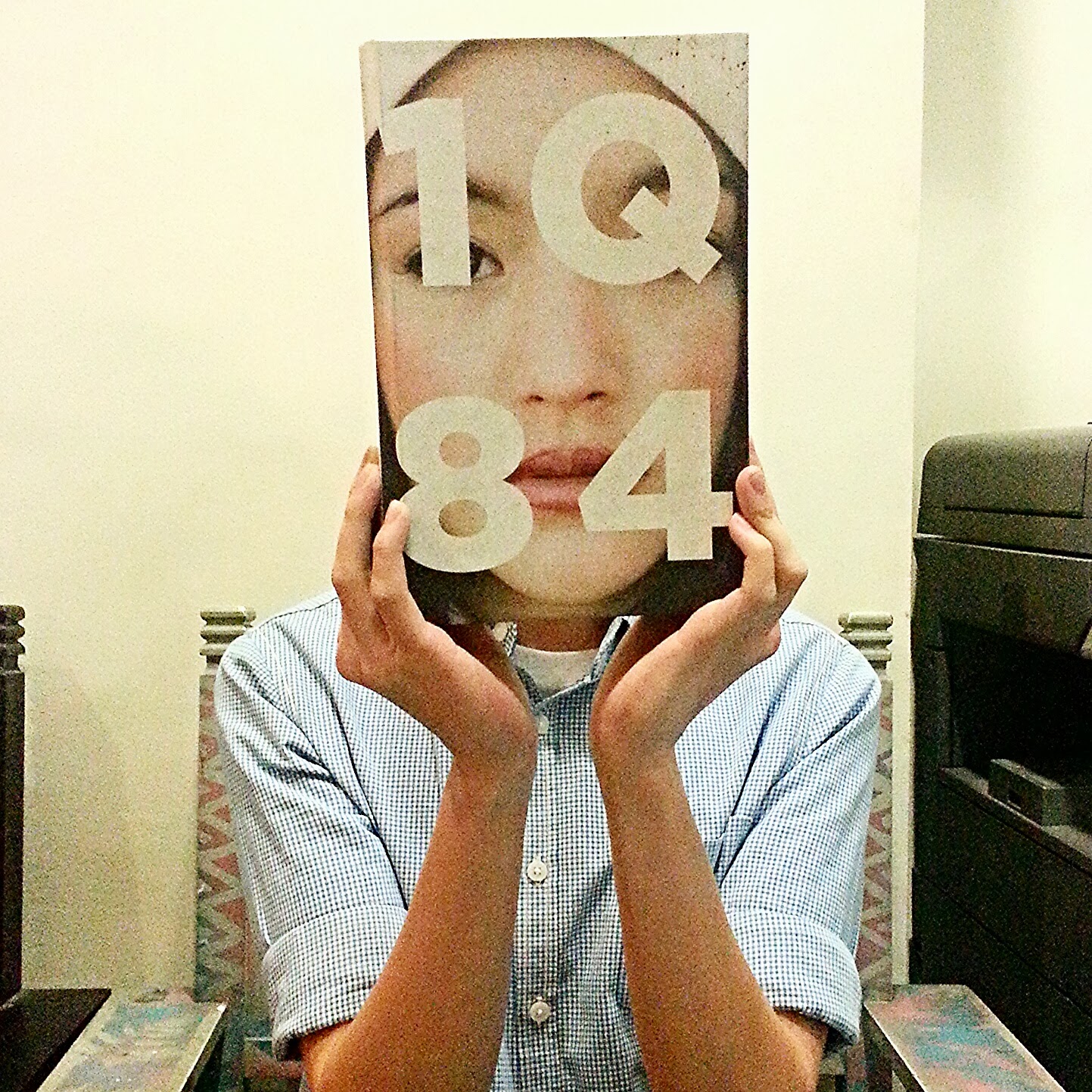I've finally accomplished a major reading milestone in my reading life, finishing 1Q84 by Haruki Murakami in its entirety. I bought a hardback copy of the book when the day it first came out in Fully Booked years ago, but I never got past part two of the three-part novel. With over 1,000 pages, it's really long Murakami book!
1Q84 is set in a fictional year where the letter "Q" represents a question mark. The people living in this parallel 1984 world bare witness to the phenomenon of their being two moons in the night sky. The story's two protagonists: the aspiring novelist Tengo and the gym instructor/assassin-for-hire Aomame both live in the year 1Q84.
Tengo's story begins when he ghostwrites Air Chrysalis, a novella about mythical creatures called "The Little People." The brainchild of a young girl named Fuka Eri, the novel becomes a huge bestseller. Meanwhile, Aomame is given her toughest assignment yet, to murder the leader of a religious cult called Sakigake. This man had been raping prepubescent girls in his community, and was to be released from this world.
Then, when Tengo's and Aomame's narratives converge in this year of 1Q84, a beautifully detailed and complex Haruki Murakami story emerges.
What I Liked:
I was surprised by how satisfied I was with how 1Q84 ended. Firstly, I was expecting a sad ending. I thought there was no way Tengo and Aomame would end up together, or even seeing each other. Secondly, I was expecting both protagonists to be "lost," unable to find meaning in their lives, at the end of the novel. That the protagonists ended up happily together was great!
I loved learning more about the stories of various secondary characters like Fuka-Eri, Tamaru, and even Ushikawa. Each one of them enriched the story in his own way, and made reading the novel significantly more enjoyable.
What I Disliked:
I found 1Q84 extremely repetitive. Both Tengo and Aomame keep having these internal monologues where they think about the same things over and over again. Perhaps a quarter of the novel could have been shaved off if these repetitive musings on exercise routines, culinary ingredients, and metaphorical vacuums were lessened.
And don't get me started on the story of the Gilyak people, which I found almost as boring as Tom Bombadil's poetry, from Lord of the Rings: The Fellowship of the Ring.
My Rating:


Comments
Post a Comment
I would love to hear from you, so please leave a comment.